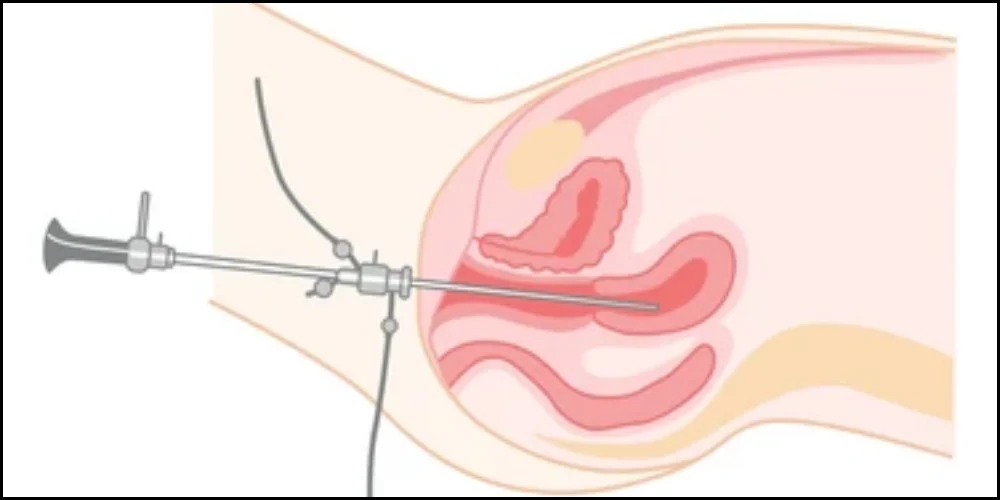Radical prostatectomy Surgery
Precision Cancer Treatment with a Focus on Patient Well-Being
Radial prostatectomy can be described as a surgery that aims at treating prostate cancer through eliminating the prostate gland completely as well as some of the surrounding tissue which includes the seminal veins. The procedure is usually recommended for those suffering from prostate cancer that is localized, meaning the cancer is restricted within the prostate gland and hasn’t expanded to other parts within the human body. In Chirayu Super Speciality Hospital, our skilled surgical team employs sophisticated techniques to ensure complete cancer elimination while minimizing the risk and ensuring a speedy recovery.

What is Radical Prostatectomy Surgery?
The radical prostatectomy is a significant surgical procedure that involves elimination of the entire prostate gland, and in some instances, surrounding lymph nodes and tissue. The aim is to eradicate cancer and lower the risk of repeat cancer. The procedure can be carried out with different methods, such as laparoscopic surgery, open surgical or robotic-assisted surgery. The decision to choose a method is based on many factors, such as the overall health of the patient as well as the stage of cancer, as well as the expertise of the surgeon.
Who Performs Your Surgery
The radical prostatectomy you undergo performed at Chirayu Super Speciality Hospital will be performed by a highly experienced Urologist who is specialized in cancer surgery. Our surgeons are skilled with the most advanced methods, including minimally-invasive and robotic assisted surgeries, which will ensure the most optimal outcome for the patients we treat. They work in conjunction with a multidisciplinary team including radiologists and oncologists to develop a customized treatment plan tailored to meet your requirements.
Indications for Radical Prostatectomy Surgery
- Localized Prostate : Cancer People with prostate cancer that is localized to the prostate, and is not spreading to other parts of the body.
- Younger patients : Often recommended for older men who are healthy and have a higher life expectancy.
- Cancer-related symptoms : Men experiencing symptoms such as urinary obstruction or extreme discomfort due to prostate cancer.
Types of Radical Prostatectomy Surgery
- Open Radical Prostatectomy : The most common method is an incision of a single, huge size to eliminate the prostate gland as well as its surrounding tissues.
- Laparoscopic Radical Prostatectomy : A minimally-invasive method that involves small incisions and a camera that will assist the surgeon to remove the prostate.
- Robot-Assisted Radical Prostatectomy : A innovative, minimally-invasive technique in which the surgeon is able to control robotic instruments to ensure the precise removal of prostate.
Symptoms Indicating the Need for Surgery
- A weak or difficult urine flow.
- The urine contains blood, or semen.
- Pain that persists throughout the hips, lower back or the thighs.
- Inability to maintain an erection.
- Increased prostate-specific antigen (PSA) levels are present in the blood.
Diagnosis Leading to Radical Prostatectomy
The decision to undergo radical prostatectomy depends upon a definitive diagnose of prostate cancer typically, it is based on an amalgamation of PSA screening and digital rectal examination (DRE) and prostate biopsy and imaging tests like MRI and CT scans. The surgeons will assess the stage and severity of cancer, and also the overall health of the patient, to determine whether radical prostatectomy is the most effective treatment choice.
Treatment Process
The procedure is usually carried out under general anesthesia. It can take up to several hours. The surgeon will remove the prostate gland, along with the surrounding tissues, and, in some cases adjacent lymph nodes. The procedure is performed with surgical open, laparoscopic, or robotic-assisted methods, based on the condition of the patient and the surgeon’s recommendations. After surgery the patient may have to stay in hospital for a couple of days to check their the recovery.
Care and Recovery After Surgery
Recovery after radical prostatectomy is the careful treatment of post-operative pain and gradual return to normal routine. Patients can suffer from urinary incontinence or Erectile dysfunction as short-term symptoms, but these will improve by using medication and physical therapy. It is important to adhere to the post-operative instructions, which include dressing wounds, limiting activity following-up appointment to track the healing process and identify any indications of the recurrence of symptoms.
Advantages of Choosing Our Surgery Services
Experienced Surgeons
Our urologists are leaders in prostate cancer surgery, offering expert care and advanced surgical techniques.
Minimally Invasive Options
We provide robot-assisted and laparoscopic surgery options, which result in less pain, quicker recovery, and minimal scarring.
Comprehensive Cancer Care
Our multidisciplinary approach ensures that every aspect of your cancer treatment is covered, from surgery to follow-up care.
What Our Patients Say
Read about our patients positive experiences and how Chirayu Super Speciality Hospital has positively impacted their health and well-being.


The results of my radical prostatectomy were great, and I experienced minimal discomfort thanks to the skilled team at Chirayu.


The comprehensive support I received during my radical prostatectomy at Chirayu was impressive. I’m grateful for the excellent care.


Thanks to the robot-assisted surgery, my recovery after radical prostatectomy was quicker than I expected. The care team was exceptional.


The surgeons at Chirayu are highly skilled, and my radical prostatectomy went smoothly. I’m grateful for their expertise and care.
Meet Our Medical Specialists
Our expert urologists specialize in radical prostatectomy, providing advanced, personalized care to effectively treat prostate cancer with precision.
Frequently Asked Questions
Here, we provide answers to some of the most commonly asked questions to help you better understand about our surgery services. If you have any additional questions, please do not hesitate to contact us.
Men with localized prostate cancer, generally in good health, and with no spread of cancer beyond the prostate are ideal candidates.
Open surgery involves a single large incision, laparoscopic uses small incisions and a camera, and robotic-assisted surgery offers enhanced precision with robotic instruments.
Risks include urinary incontinence, erectile dysfunction, infection, and bleeding. These risks vary depending on the patient’s overall health and the surgical technique used.
Radical prostatectomy is a surgical procedure to remove the entire prostate gland and some surrounding tissues to treat prostate cancer.
Recovery varies, but most patients can return to normal activities within 4 to 6 weeks. Full recovery of urinary and sexual functions may take longer.



